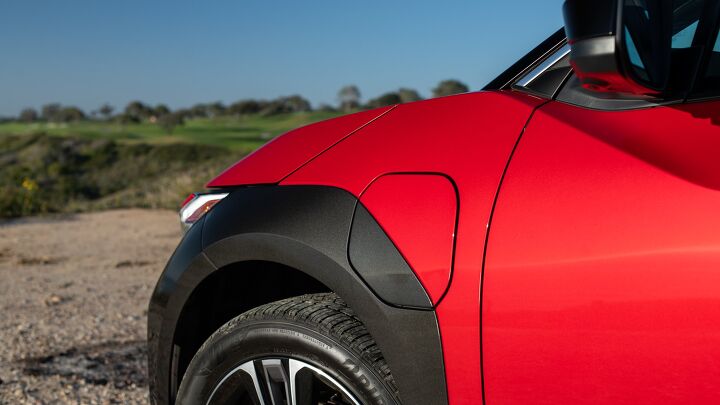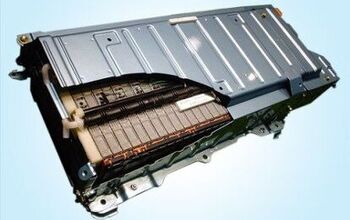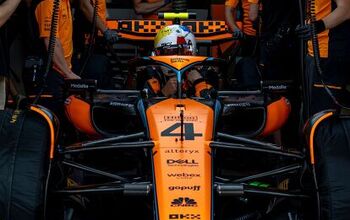Toyota's EV Battery Production Efforts are Looking Up

Toyota may be pushing hard toward more diverse propulsion options instead of solely focusing on EVs, but that doesn’t mean it’s not looking for ways to make headway on electrification. The Japanese auto giant recently announced its acquisition of Primearth EV Energy from Panasonic, which it said would give it a significant boost toward EV battery mass production.
The company already owned 60 percent of Primearth, starting with a 40 percent stake when it was founded in 1996, climbing to 60 percent in 2005. In 2010, Toyota grabbed another 20.5 percent, so this recent announcement only really covers 19.5 percent of Primearth. Some of the automaker’s other partially-owned companies already produce hybrid batteries, and some build PHEV and EV batteries.
Toyota has announced a next-generation battery that it said can deliver up to 500 miles of range. It’s expected to roll the first market-ready units in 2026, and it noted that they would support super-fast charging, with times as low as 20 minutes. That could coincide with a next-gen bZ4X or the expected bZ small crossover’s release.
By 2028, Toyota expects to offer EV batteries with more than 621 miles of range and the same 20-minute charging time. They are also expected to cost 10 percent less than the batteries released in 2026.
Toyota has long promised upgraded batteries, but the automaker has so far not hit its targets, pushing solid-state batteries out as far as 2030. In the meantime, its cautious approach to EVs looks to be paying off, as other automakers have grappled with wavering demand and high costs.
[Image: Toyota]
Become a TTAC insider. Get the latest news, features, TTAC takes, and everything else that gets to the truth about cars first by subscribing to our newsletter.

Chris grew up in, under, and around cars, but took the long way around to becoming an automotive writer. After a career in technology consulting and a trip through business school, Chris began writing about the automotive industry as a way to reconnect with his passion and get behind the wheel of a new car every week. He focuses on taking complex industry stories and making them digestible by any reader. Just don’t expect him to stay away from high-mileage Porsches.
More by Chris Teague
Latest Car Reviews
Read moreLatest Product Reviews
Read moreRecent Comments
- L&L I have a 2004 Xb right now the odometer reads 265,000 miles no mayor issues ,pay 14,500 . you don't need complaints about this lunch box the best .
- Jeanbaptiste 2022 Tesla model 3 performance ~35000 miles tires - ~$1000ish. Several cabin filters ~$50
- El scotto No rag-top, no rag-top(s) = not a prestigious car brand. Think it through. All of the high-end Germans and Lexus have rag-tops. Corvette is really its own brand.World-leading engines. AMG, M, S and well Lexus is third-world tough. GM makes one of the best V-8s in the world in Bowling Green. But nooooo, noooo, we're GM only Corvettes get Corvette engines. Balderdash! I say. Put Corvette engines in the top-tier Cadillacs. I know GM could make a world-class 3.5 liter V-6 but they don't or won't. In the interior everything that gets touched, including your butt, has to feel good. No exceptions.Some think that those who pay above MSRP and brag about it are idiots. Go the opposite direction, and offer an extended 10-year 100,000-mile factory warranty. At a reasonable price. That's Acura's current business model.
- Carrera 2014 Toyota Corolla with 192,000 miles bought new. Oil changes every 5,000 miles, 1 coolant flush, and a bunch of air filters and in cabin air filters, and wipers. On my 4th set of tires.Original brake pads ( manual transmission), original spark plugs. Nothing else...it's a Toyota. Did most of oil changes either free at Toyota or myself. Also 3 batteries.2022 Acura TLX A-Spec AWD 13,000 miles now but bought new.Two oil changes...2006 Hyundai Elantra gifted from a colleague with 318,000 when I got it, and 335,000 now. It needed some TLC. A set of cheap Chinese tires ($275), AC compressor, evaporator, expansion valve package ( $290) , two TYC headlights $120, one battery ( $95), two oil changes, air filters, Denso alternator ( $185), coolant, and labor for AC job ( $200).
- Mike-NB2 This is a mostly uninformed vote, but I'll go with the Mazda 3 too.I haven't driven a new Civic, so I can't say anything about it, but two weeks ago I had a 2023 Corolla as a rental. While I can understand why so many people buy these, I was surprised at how bad the CVT is. Many rentals I've driven have a CVT and while I know it has one and can tell, they aren't usually too bad. I'd never own a car with a CVT, but I can live with one as a rental. But the Corolla's CVT was terrible. It was like it screamed "CVT!" the whole time. On the highway with cruise control on, I could feel it adjusting to track the set speed. Passing on the highway (two-lane) was risky. The engine isn't under-powered, but the CVT makes it seem that way.A minor complaint is about the steering. It's waaaay over-assisted. At low speeds, it's like a 70s LTD with one-finger effort. Maybe that's deliberate though, given the Corolla's demographic.


































Comments
Join the conversation
Toyota is likely to go full Hybrid long before full EV (if ever) and that requires a lot of batteries so they need the capacity. The promised 500 mile range isn't the biggie, it's the 20 minute recharge time. That might mean you could add enough charge for 200-300 miles in 10 minutes which would end one of the real world problems.
Batteries don't provide range - cars do.
That mythical 621-mile range is 1000 km WLTP, which is more like 520 miles EPA... but what size car do you get for that, and I'll guarantee it's not real-world.
Toyota isn't sincere about EVs, nor tightening lug nuts.